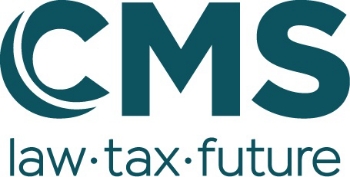On April 12 2016 the Federal Court of Justice rendered a decision on the issue of information exchange between competitors.(1) The court followed the European Court of Justice's (ECJ) approach regarding the presumed causal link between concerted practice and the subsequent market conduct of the parties concerned. The judgment confirms that the standard for illicit information exchange under German competition law is the same as the strict standard under EU competition law.
Background
In March 2011 two German public broadcasters, ARD and ZDF, mutually informed each other about their respective decision to no longer pay service fees to cable network operators and to terminate the contract with one specific operator (the claimant before the Federal Court of Justice). Both broadcasters were of the opinion that the commercial value of their respective media content sufficiently compensated for the transmission and distribution service provided by the operators. More than one year after the information exchange, ARD and ZDF simultaneously terminated their contracts with the cable network operator, but continued to provide their television signals without paying a fee. The cable network operator considered the termination to be in violation of Section 1 of the Act against Restrictions of Competition (the national equivalent to Article 101 of the Treaty on the Functioning of the European Union (TFEU)) and instigated a civil lawsuit.
Decision
Similar to Article 101 of the TFEU, Section 1 of the Act against Restrictions of Competition prohibits any concerted practice which has as its object or effect the prevention, restriction or distortion of competition. With respect to the required element of acting in concert, the court found that the broadcasters had substituted practical cooperation for the risks of competition by informing each other that they would no longer pay service fees to cable network operators and would terminate the contract at issue.
Regarding the required causal link between the concerted practice and the market conduct of the parties, the court adopted the ECJ's long-standing jurisprudence – according to which undertakings participating in concerting arrangements and remaining active on the market are presumed to take account of the information exchanged with their competitors when determining their conduct on that market. In order to rebut this presumption, the parties concerned must adduce sufficient evidence (eg, internal protocols) of the fact that they have decided on their market behaviour independently of their acting in concert. According to the court, the broadcasters had so far been unable to rebut the presumption, basically because they indeed terminated the contract exactly as they had previously discussed. However, the Federal Court of Justice eventually referred the case back to the Court of Appeal and ordered that it be clarified whether the broadcasters can rebut the presumption.
Comment
The exchange of information between competitors is a sensitive issue and it is clear that the standard under German competition law is the same as under EU competition law. This applies particularly for the presumption that the concerted practice influenced market behaviour. Even if there is a reasonable market decision to take, such as the decision to terminate a contract, it is crucial not to share this decision with a competitor. The burden of proof is extremely high for the parties to demonstrate that their market behaviour was adopted independently of their acting in concert.
For further information on this topic please contact Christoff Soltau or Frédéric Crasemann at CMS Hasche Sigle by telephone (+49 40 37 63 00) or email ([email protected] or [email protected]). The CMS Hasche Sigle website can be accessed at www.cms-hs.com.
Endnotes
(1) KZR 31/14.
This article was first published by the International Law Office, a premium online legal update service for major companies and law firms worldwide. Register for a free subscription.




